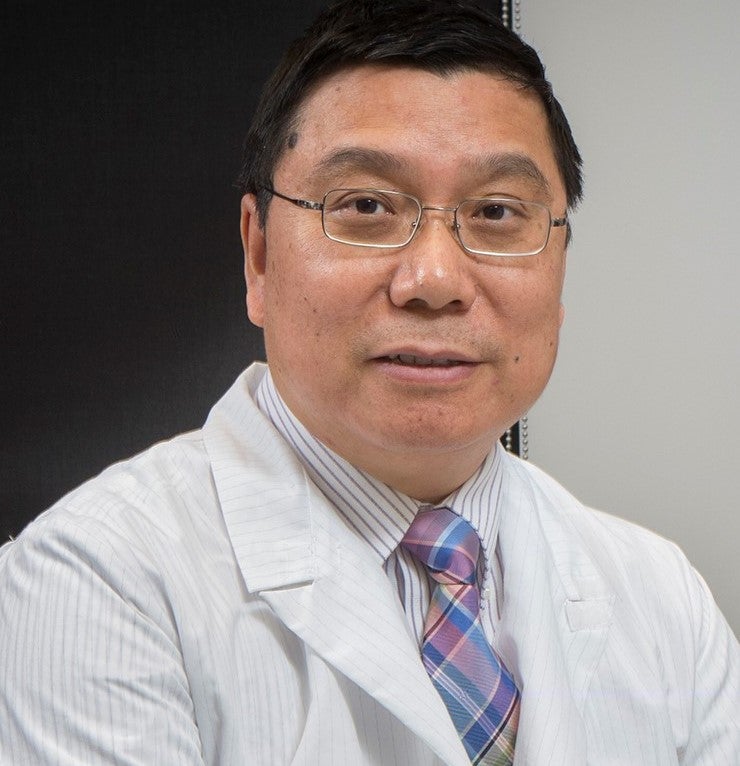CBET Webinar Series Returns on April 27th for a Webinar on Biomedical Tissue Fabrication
April 27, 2021
Presented by: CBET in partnership with Binghamton University.
Moderator: Julian Rosenberg, PhD, Associate Director, CBET
Dr. Kaiming Ye will discuss how the creation of highly organized multicellular constructs, including tissues and organoids, will revolutionize tissue engineering and regenerative medicine. The development of these technologies will enable the production of individualized organs for patient-tailored organ transplantation or individualized tissues for therapy. These lab-produced high order tissues and organs can serve as disease models for pathophysiological study and drug discovery. We have developed an innovative tissue assembly technology for generating pancreatic islets from human pluripotent stem cells (HPSCs). These islets exhibited a tissue architecture similar to human pancreatic islets, consisting of pancreatic α, β, d, and PP cells. We discovered that tissue scaffolding is critical to the generation of pancreatic endoderm and the assembly of islet architectures. The organoids formed consisted of a high-level co-expression of PDX1, NKX6.1, and NGN3, suggesting the characteristics of pancreatic β cells. More importantly, most insulin-secreting cells did not express glucagon, somatostatin, or PP. The expressions of mature β cell marker genes such as Pdx1, Ngn3, Insulin, MafA, and Glut2 were detected in these islet organoids. A high-level expression of C-peptide confirmed the de novo endogenous insulin production in the organoids. Insulin-secretory granules, an indication of β cell maturity, were detected. Glucose challenging experiments suggested that these organoids are sensitive to glucose levels due to their elevated maturity. Exposing the organoids to a high concentration of glucose induced a sharp increase in insulin secretion, whereas glucagon is released when they are exposed to a low glucose, indicating the glucose-responsive insulin release and glucagon secretion, a characteristic physiological metabolism of the human islets. Our recent bioinformatics study revealed tissue specific niches essential for islet maturation. These discoveries are one-step closer to fabricating physiologically functional human islets for diabetes treatment and drug discovery. In addition, we developed a 3D rotatory printer for fabricating small diameter blood vessel grafts. The fabricated vessel grafts possess mechanical strengths needed for implantation.
ABOUT THE SPEAKERS

Dr. Kaiming Ye is Professor and Chair of Biomedical Engineering and Director of the Center of Biomanufacturing for Regenerative Medicine at Binghamton University (BU), SUNY. He is one of the world-leading scientists in advanced biomanufacturing. He is a visionary and highly accomplished administrator, researcher, and educator. He is fellow of AIMBE, Fellow of the Biomedical Engineering Society, and senior member of IEEE. He is Chair of the Council of Chairs of Biomedical Engineering and a member of NIH/NIDDK Rebuilding Kidney Consortium’s Advisory Committee. Dr. Ye pioneered islet organoid development from human pluripotent stem cells (HPSCs). His group is the first one that demonstrated the feasibility of generating functional human islets from HPSCs. His work in 3D tissue bioprinting was featured in the February 2015 issue of Prism (ASEE). Dr. Ye is one of the pioneers who designed fluorescence resonance energy transfer nanosensors for continuous glucose monitoring. His early work in yeast surface protein display opened a new avenue to arm yeast with various displayed proteins. This groundbreaking study was featured in two major Japanese newspapers, the Japanese Economic Daily and Japanese Industrial Newspaper. Dr. Ye’s recent work on cancer immunotherapy led to the development of a new cancer immunotherapeutic vaccine. To fight against Covid-91 pandemic, his group has invented a UVC germicidal bath station to disinfect and reuse N95 respirators. As a researcher, he has secured more than $43 million in grants (as PI or co-PI). Dr. Ye has published one book, more than 100 high impact peer-reviewed research articles, book chapters, proceedings, and reports. He has chaired and co-chaired more than 10 international and national conferences and delivered more than 46 keynote/plenary/invited speeches in international and national conferences and graduate seminars in more than 52 universities. He has contributed significantly to national policy-making in science and engineering. During his tenure at the NSF, he directed a biomedical engineering program. He was a member of the Interagency Workgroup for Neuroscience, Interagency Modeling and Analysis Workgroup, and Multiagency Tissue Engineering and Regenerative Medicine Workgroup. As Chair of the Biomedical Engineering Department at Binghamton, he led its growth in rankings, research expenditures, and undergraduate and graduate programs.
